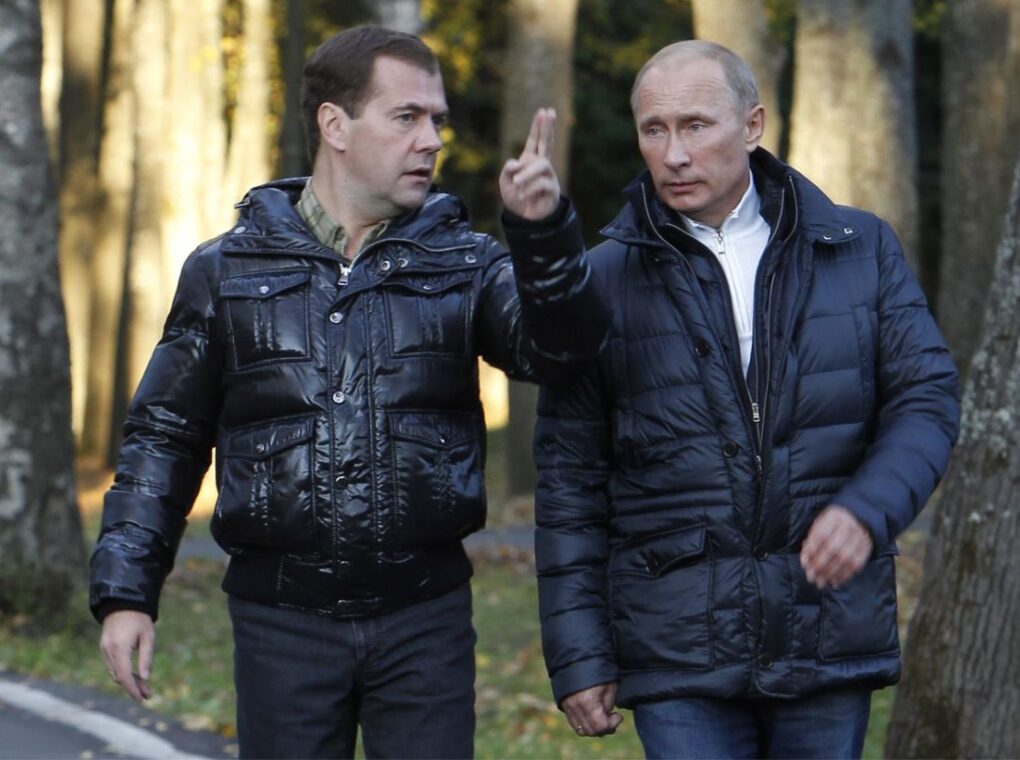In a sharp escalation of rhetoric amid the ongoing Russia-Ukraine conflict, Russian Deputy Chairman of the Security Council Dmitry Medvedev issued a stark warning in response to Ukrainian President Volodymyr Zelensky’s recent statements.
Zelensky, in an interview with Axios, suggested that Russian officials should “know where the nearest bomb shelter is” in preparation for potential Ukrainian strikes using long-range American weapons, which he claimed were under consideration by U.S. President Donald Trump to “force Putin to the negotiating table.” Medvedev retorted, “The freak needs to know something else: Russia can use such weapons, from which an air raid shelter will not help. And the Americans should remember this.”
The exchange comes at a time of heightened tensions, with Ukraine reportedly seeking approval to deploy U.S.-supplied long-range missiles, such as ATACMS, to strike targets deep inside Russian territory.
Zelensky’s remarks were interpreted by some as signaling potential U.S. support for targeting Russian energy and industrial infrastructure, particularly in response to Russian attacks on Ukraine’s energy sector. Medvedev’s response underscored Russia’s nuclear capabilities, implying that any escalation could lead to catastrophic consequences beyond the protection of conventional bomb shelters.
Kremlin spokesperson Dmitry Peskov, when asked about the exchange, reiterated Russia’s commitment to monitoring Western weapons deliveries to Ukraine but avoided directly addressing Medvedev’s nuclear rhetoric. “We see different rhetoric from Washington, but it does not contradict their will to push for a peaceful settlement in Ukraine,” Peskov stated, referencing ongoing diplomatic efforts.
The provocative language from both sides has raised concerns about further escalation in the conflict, which has already seen intensified Russian aerial bombardments and Ukrainian drone strikes on Russian targets, including the Ust-Luga Sea terminal in the Leningrad region.
European leaders, wary of U.S. policy shifts under President Trump, have expressed fears of being blamed for Ukraine’s challenges, with some questioning the reliability of U.S. support, according to the Financial Times.
Analysts warn that the rhetoric, combined with the potential for long-range strikes, could push the conflict toward a dangerous new phase. The U.S. has previously hesitated to authorize such strikes, with Pentagon officials noting in August 2025 that the limited supply of ATACMS would not significantly alter the battlefield dynamics. Nevertheless, Zelensky’s comments suggest a renewed push for expanded Western military support.
As the war continues, the international community remains on edge, with both sides signaling their readiness to escalate while diplomatic channels struggle to find a path to de-escalation. Medvedev’s warning serves as a grim reminder of the high stakes involved, with implications that extend far beyond the battlefield.
